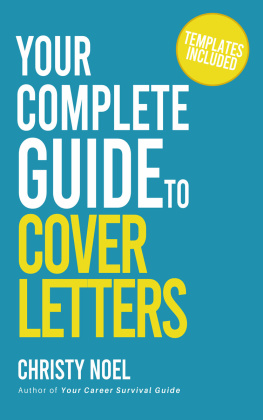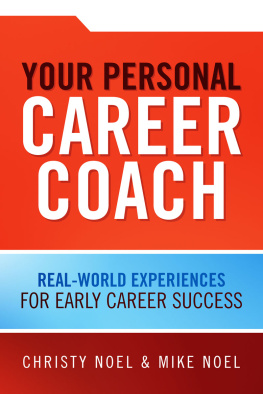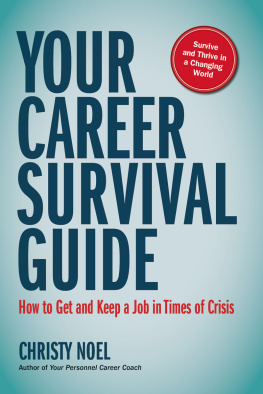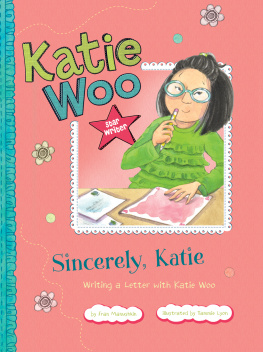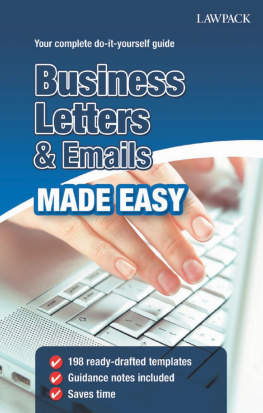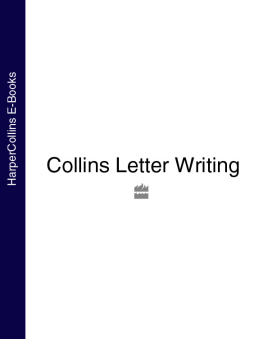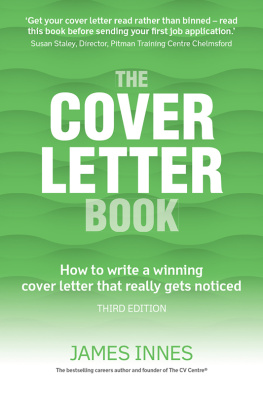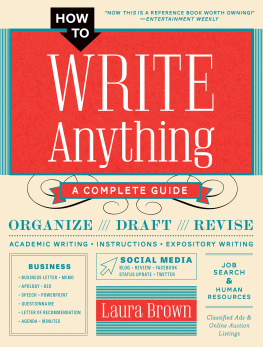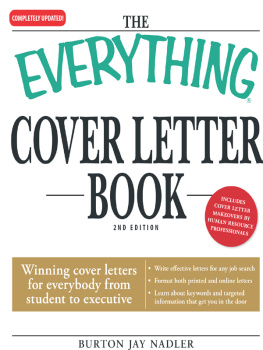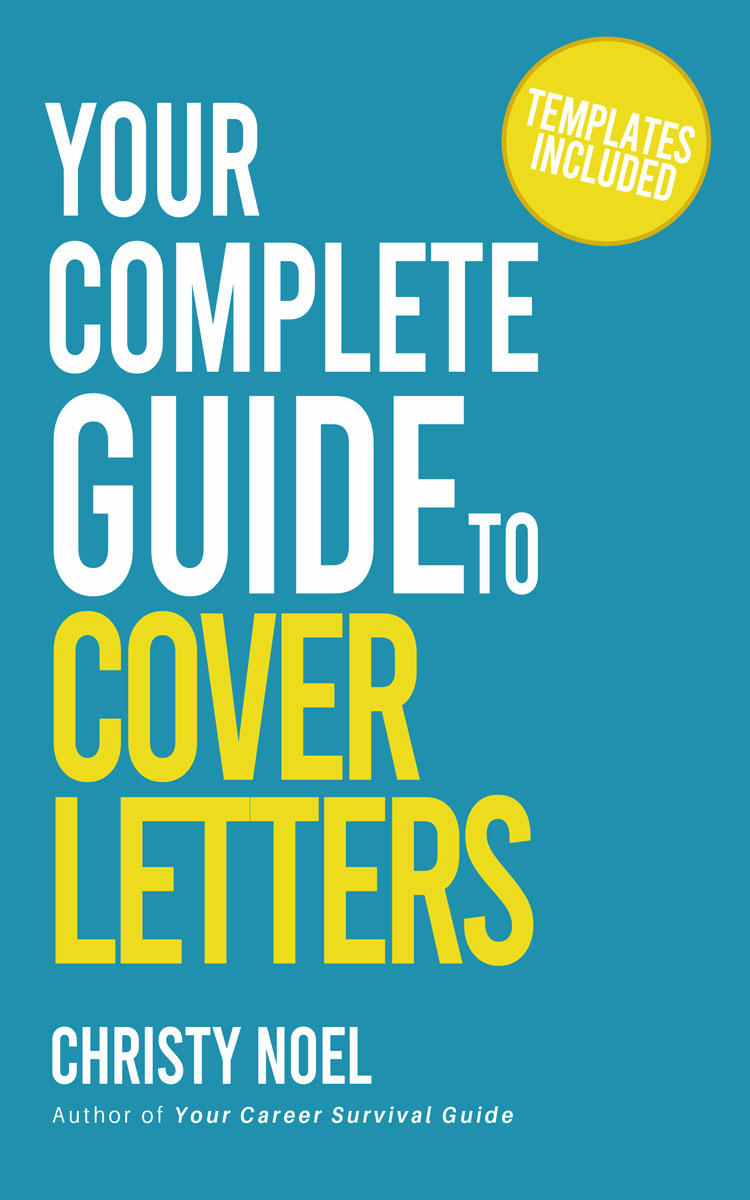
Your Complete Guide to Cover Letters
As you get ready to apply for an exciting new job, you may ask yourself, I know I need a resume, but is a cover letter really necessary?
I get it. You may have been told no one reads cover letters. Or you may believe they are an optional part of a job application. And, lets face it, writing a good cover letter is time-consuming. So, its easy to fall into a trap of thinking your time can be better spent on something else.
Dont fall into that trap!
The cover letter is a great opportunity to demonstrate your interest in the position, sell yourself and show how you are going to shine in the roll if hired. If someone tells you that you dont need to include one, dont listen to them. Even if not every recruiter and hiring manager looks at it, a cover letter will make a difference to the ones who do.
You wouldnt apply for a job without sending a resume, right? Think of the cover letter the same way. Dont even consider applying for a job without including a cover letter.
Good news! This guide is here to help make it easier for you.
Your Complete Guide to Cover Letters will assist you in putting together a cover letter that grabs attention to help you get more job interviews. Youll learn why cover letters are so important, what to include in them, and how to write a compelling introduction. There is a complete cover letter template and tips on how to send it once you have perfected your cover letter. There are also tips on how to write a cover letter even if you have no work experience.
You have everything you need in this guide to put together a powerful cover letter. Take the time to craft a strong cover letter and stand out from the other applicants. It could be the difference from getting placed in the pass on this candidate pile and getting the job!
83% of human resource pros say cover letters are an important component of the decision-making process.*
More Career Resources
I hope the advice in Your Complete Guide to Cover Letters helps you get a job, get ahead, and establish a rewarding career. If you are ready to jump in right away, I have additional free resources to help you find a job and propel your career, including:



- 7 Resume Dos and Donts That Get You Noticed resume guide
- Your Complete Guide to Informational Interviews (with templates)
- 8 Simple Things That Will Get You Promoted career guide


My book Your Career Survival Guide: How to Get and Keep a Job in Times of Crisis , delivers the straight talk and real advice needed to help you land a job or secure the one you have during the COVID-19 pandemic and other economic or global crises.
In my upcoming book, Your Personal Career Coach: Real-World Experiences for Early Career Success , I am joined by 25 professionals. We all share personal stories from our careers to create the definitive guide on how to get hired, get ahead and succeed in a rewarding career. Your Personal Career Coach will be available in September 2020.
Follow me on social media for career advice and tips (links below). My latest career advice stories, guides and posts can be found at christynoel.com/resources .
If there is career information you are seeking or questions you have, reach out. Id love to hear from you and assist you on your journey. Heres to your career success! Christy




Why a Cover Letter is Important
A cover letter is important because it provides you the opportunity to create a narrative around your candidacy and why you are perfect for the job. A good cover letter can actually do this more effectively than a resume can.
From a hiring managers perspective, a cover letter is extremely important. It lets them know you better as a candidate and why you are a good fit for the role. A cover letter enables hiring managers to learn the experience you have that makes you qualified, what results youve previously achieved to know you can be successful in the role, and how you understand their challenges better than any other candidate. A cover letter can also address any perceived inconsistencies or disconnects between your background and the job requirements and do it more effectively than your resume can.
A few reasons why a cover letter is important:
Spotlights Your Most Relevant Experience
A cover letter should not be a regurgitation of your resume. A good cover letter puts the spotlight on the most relevant experience that makes you an ideal candidate. You can use a cover letter to focus on several key requirements of the position and drill down into your experience with them. You can do this by providing examples of what youve done that is exactly in line with the key responsibilities of the position and share your results to demonstrate youve successfully mastered these skills.
Shows You Understand the Position
A cover letter is a great opportunity to show the hiring manager how you can add value to their team. Its your chance to show you understand the challenges they face and how you are qualified to take them on. The cover letter is the best place to highlight how you will alleviate some of the hiring managers concerns and remove them from their ever-growing to-do list. With a cover letter, you can share how you have worked at companies with similar challenges and how your projects directly helped the department or company become more effective, efficient, larger, and successful.
Conveys Your Personality
Before getting an interview, the cover letter is the best way to convey your personality. Corporate culture is extremely important. Finding a candidate who is a cultural fit is as important for the company, if not more important, than the experience a candidate brings. Include some of your personality in your cover letter so the hiring manager or recruiter gets a feel for you. Do not, however, position yourself as someone you are not in an attempt to appear a good candidate. The hiring manager will figure that out pretty quickly once they meet you! And really, do you want to work at a company thats not a cultural fit? That never works long-term for either party.
Addresses Potential Concerns
Cover letters are the perfect place to address, head-on, any potential concerns the hiring manager may have about your application. Use your cover letter to address relocation issues and why you are applying for a job that is several hundred miles away from where you currently live. Do you have gaps in your employment? A cover letter provides you a great opportunity to
Next page
